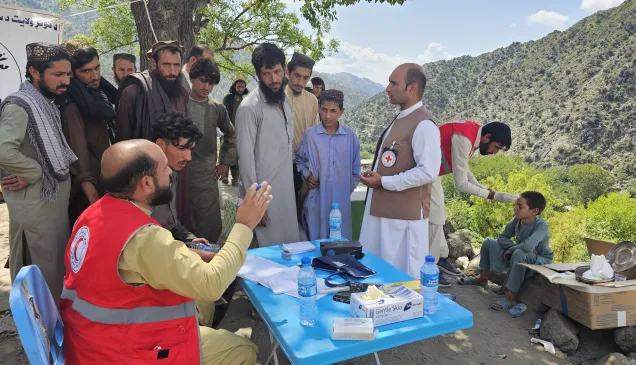Afghanistan: Vocational training empowers people with disabilities and fosters social inclusion
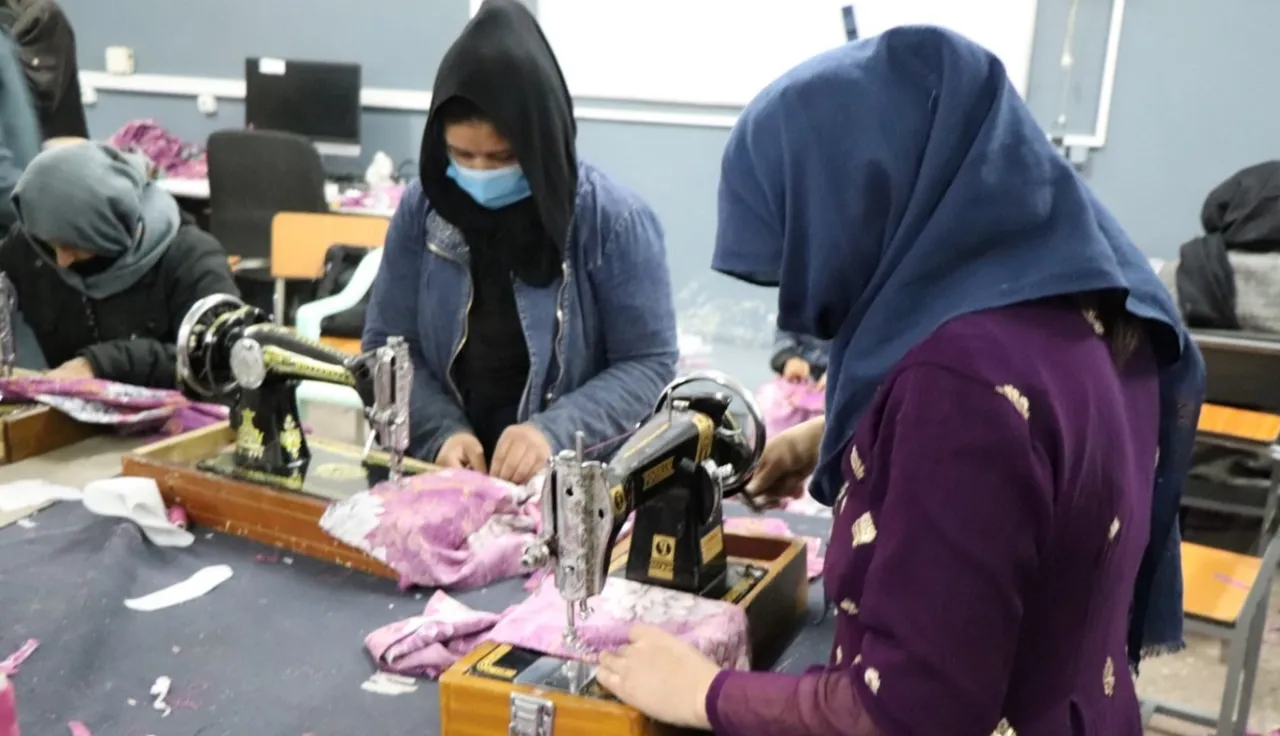
At the seven physical rehabilitation centres run by the International Committee of the Red Cross – ICRC in Afghanistan, vocational training for people with disabilities is not just about equipping them with technical skills, but about helping them recognize their inherent potential beyond their physical or cognitive limitations.
By providing individuals with the skills and knowledge needed to secure meaningful employment, people with disabilities are empowered to take on active roles in society and contribute their unique talents and abilities to the country’s workforce.
The ICRC has been helping people with disabilities in Afghanistan through the Physical Rehabilitation Programme – PRP since 1988, providing assistive devices such as prostheses and orthoses and essential services like physiotherapy. Recognizing the importance of economic independence to the self-esteem and general well-being of a person, the programme also focuses on promoting social inclusion of people with disabilities through vocational training and by providing microcredit loans. From January 2024 to August 2024, we facilitated vocational training for 189 people with disabilities, including 75 men and 114 women.
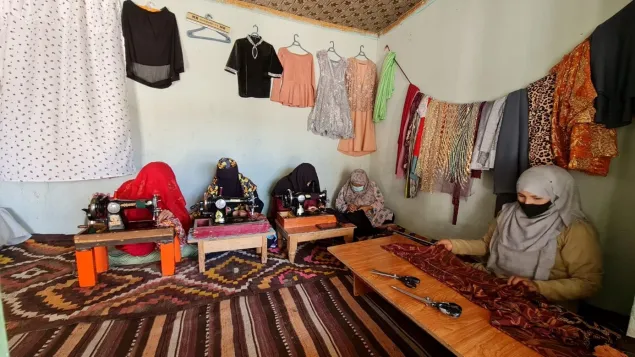
Nilofar Akbari (far right) works in her tailoring shop in Mazar-i-Sharif with four other workers
Nilofar Akbari, 29, represents the impact of vocational training on people with disabilities and the power of the right opportunity. Diagnosed with polio at the age of two, Nilofar shares that she endured a childhood of isolation and hardship because of her disability. “I couldn't take part in social gatherings or ceremonies. People used to give me strange looks all the time. I used to feel hopeless about life, especially when I saw others walking,” she says.
However, life took a positive turn when she received the necessary medical care and orthotic devices at the ICRC’s physical rehabilitation centre. What was more special for her was that with the ICRC’s help, she was able to build on her existing tailoring skills and turn it into a means of supporting her family of seven. “I received vocational training certification and a microcredit loan to start my own business. Today, I have employed four other women with disabilities, helping them also earn a living like me,” says Nilofar.
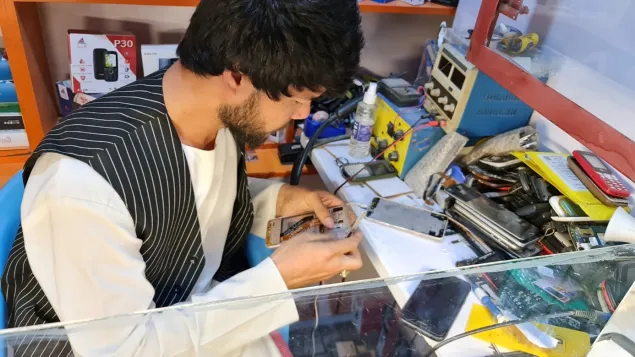
Baqir repairs a smartphone in his workshop in Mazar-i-Sharif
Like Nilofar, Baqir, who was born with a deformity in his leg that made walking painful and nearly impossible, also felt isolated and helpless as he struggled to navigate the world with his disability.
But things began to change for him when his family brought him to the ICRC’s physical rehabilitation centre in Mazar-i-Sharif. He received treatment and orthotic devices that helped him to be mobile and independent, sparking a glimmer of hope for the future.
However, the road ahead was still fraught with challenges and Baqir struggled to find his place in society. “I also wanted to support my family, but I didn’t know what to do. That’s when a friend told me about the ICRC’s vocational training programme and I enrolled in a training course to repair mobile phones,” he says.
With the ICRC’s support that covered the cost of his mentor and training, Baqir gained not just the skills but also the confidence to start his own business. “I set up my own workshop with a microcredit loan that I received from the ICRC. I earn an average of AFN 15,000 (USD 208) a month and I’m able to provide for my family and invest in my children’s future,” he says with pride.
Candidates between 16 and 40 years old are carefully assessed by the ICRC on the basis of skills, preferences and disability type to ensure a successful match with the appropriate programme. Experienced trainers then work closely with each applicant to tailor programmes according to their unique needs and goals. The curriculum includes regular monthly assessments to track progress and make necessary adjustments. The training period spans from six to 18 months.
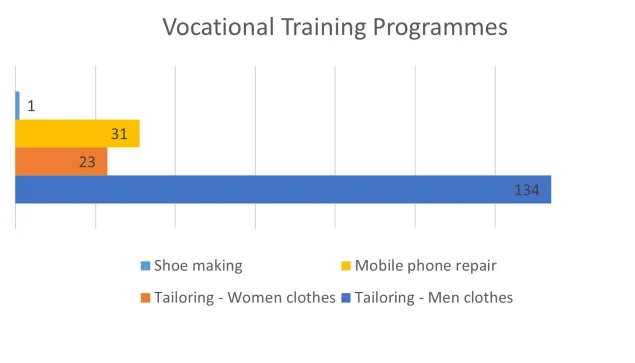
Vocational training programmes in which people with disabilities enrolled between January 2024 and August 2024
While the training primarily takes place in private workshops, some sessions are held at the physical rehabilitation centres. Upon completing their training, graduates have the opportunity to receive microcredit loans based on their assessment to start their own businesses and continue their journey of economic empowerment.


